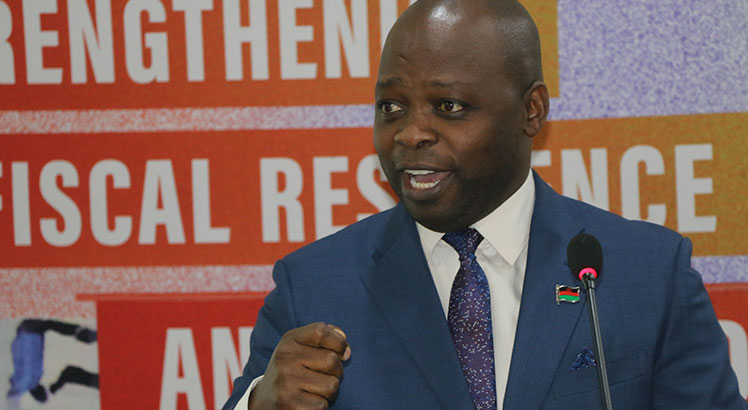Health financing yet to be decentralised
As the country is striving to achieve total decentralization, where central government operations devolve to district councils, health financing is largely still being controlled by the central government. It is in this vein that recently, Minister of Local Government Blessings Chinsinga, participated in the National Health Financing Dialogue Panel Discussion, organised by the Ministry of Health. In this interview with our Contributor STEVE CHILUNDU, Minister of Local Government BLESSINGS CHINSINGA explains the readiness to embrace health financing devolution. Excerpts:

Firstly, what is your view of the proposals in the Health Financing Strategy?
The Health Financing Strategy is proposing direct facility financing of sub-district health facilities. This proposal will be akin to the school improvement grants. The proposal is justified in the Health Financing Strategy because it will improve both allocative efficiency and equity in financing.
How is this health financing initiative linked to your Ministry of Local Government?
The initiative is very welcome and exciting because it is in line with the Ministry’s goal of deepening decentralisation, including fiscal decentralisation. This will ensure that resources trickle down and be managed at the lowest level of governance structures for not only effective delivery allocative efficiency and equity in financing but also ownership, sustainability, capacity building and accountability and transparency.
What actions will you take to ensure efficiency and prudent public resource management at the lower local government structure level?
For this to actualise properly, there is need to recruit Accounts Assistants who will be responsible for managing these financial resources at the health facility level. A mechanism will be put in place where one Accounts Assistant will be assigned to a number of health facilities as it would not be realistic to expect each facility to have its own Accounts Assistant. This will ensure compliance to the Public Finance Management Act and also that only those trained in accounts should manage public finances unlike to have finances managed otherwise. Further, the accounting process will be such that resources will be allocated to a council with the District Commissioner (DC) as Controlling Officer and the health facilities will be sub-programs under the Health Sector for ease of follow up and allocation. This will be done by the Ministry of Local Government in conjunction with the National Local Government Finance Committee (NLGFC).
Funding is a major bottleneck largely affecting ministries, have you considered this in your plans?
Our goal is to ensure that we create a robust unified funding system that should be used to deliver quality services to our people. We want to avoid as much as possible the temptation to create parallel funding systems for any new or additional streams of funding. We want to create a trusted, reliable and credible Local Government Funding and Financial Management system that can be used by both government and development partners. This initiative further offers us an opportunity to push for a viable and robust framework for local level resource mobilisation and taxation, designed to empower local councils to raise adequate resources on their own. While the health facilities would primarily rely on central government transfers, it would be ideal to aspire for progressive augmentation of the funding base to health facilities through locally generated resources. Health is a priority area in human capital development, which is one of the key enablers within the framework of the Malawi 2063.
What public financial management challenges will this proposal bring?
One major challenge that would be encountered if finances were left with non-financial officers is that there will be lack of control, supervision, proper accounting and reporting such that the risk of mismanagement, fraud, theft, lack of proper documentation might be high. In order to overcome this challenge, I have already proposed that a sub-programme be created under the health sector at the council so that budgets and draw-downs would be made against the sub-programme by the health facilities. Records would have to be approved and reconciled as should be the case. Further, there will be need for the Ministry of Local Government, the Ministry of Health and the NLGFC to jointly develop guidelines specific to the functions, methodology, eligible expenses and operational management of these funds at the health facilities. The guidelines would also have to indicate clear roles and institutional arrangements of the different stakeholders, such as the council, among others, the DC, director of health and social services and director of finance and the health facility’s management team.
How will you institutionalise this initiative to ensure its success? To ensure that this initiative is successfully institutionalised, we shall embed the culture of learning as an integral part of the implementation framework. This will be achieved through systematic monitoring, regular reviews and feedback. The idea will be to ensure that challenges are noted as quickly as possible whereas successes and/or best practices are consolidated and leveraged upon to guarantee the success of this initiative at all costs. In short, the initiative will benefit from the anticipatory governance framework that we intend to put in place for the entire Local Government system. An anticipatory governance framework ensures that potential problems and challenges are trouble shot as quickly as possible, and this will definitely guarantee the success of this initiative.





